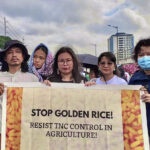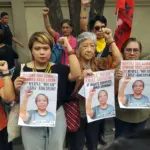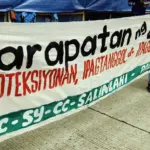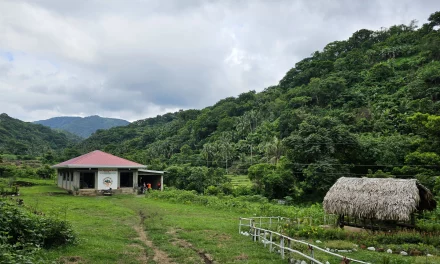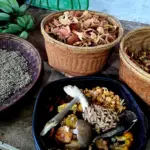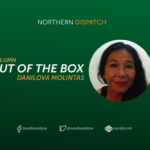3 MIN READ
By SHERWIN DE VERA
www.nordis.net
BAGUIO CITY — Farmers’ groups and food sovereignty advocates renewed their call to ban genetically modified crops in the Philippines during the 12th International Day of Action Against Golden Rice on August 8.
The Magsasaka at Siyentipiko para sa Pag-unlad ng Agrikultura (MASIPAG) and the Stop Golden Rice Network (SGRN) said the annual commemoration is “a continuation of a movement that asserts the right of the people to define and control their own food and agriculture.”
The event marked the August 8, 2013, uprooting of genetically modified Golden Rice from the Department of Agrarian Reform’s experimental farm in Pili, Camarines Sur, carried out by more than 400 farmers and activists. The protest sparked a nationwide debate on the safety of GMOs and their role in food production.
“It (Golden Rice) is emblematic of a broader strategy that displaces community-based and farmer-led solutions in favor of top-down, profit-driven interventions,” the groups stated.
They added: “The development and promotion of Golden Rice are tied to a global architecture of control that privileges corporate patents and scientific monopolies over local knowledge, biodiversity, and farmer autonomy.”
The People’s Coalition on Food Sovereignty stated that, instead of promoting biofortification to address malnutrition and hunger, the government should adopt and support people-led agroecology and food sovereignty as a long-term solution.
“Gene-edited crops are not solutions to malnutrition and hunger. Biofortification is nothing but a business strategy to maximize profits, primarily serving corporate greed. We stand to defend people’s right to define our own food systems, one that puts the interests and welfare of rural people at the forefront,” PCFS said.
In 2018, Isabela farmers protested a reported plan to field-test Golden Rice in the province. Quirino province in the Cagayan Valley region was among those chosen by the Philippine Rice Research Institute for pilot planting.
Ilocos Norte also announced plans in 2022 to plant and produce the grain with selected farmers under a proposed agreement with the Philippine Rice Research Institute, the Department of Agriculture (DA), the Bureau of Plant Industry (BPI), and the Agricultural Training Institute.
ChemChina-Syngenta, one of the world’s largest agrochemical corporations, holds the Golden Rice patent and funds the project. Syngenta’s acquisition in 2016 was China’s largest overseas deal, involving a loan of about USD 33 billion to complete the USD 45 billion transaction.
The Philippine government issued a biosafety permit for Golden Rice on December 10, 2019. The DA-BPI released the official notice for publication on December 18. The Court of Appeals revoked the permit in April 2024, ruling that the government failed to ensure independent and participatory risk assessments.
“Considering the unmistakable importance of the constitutional right to a balanced and healthful ecology, especially in these times, we remind the government of its eminent duty to assiduously protect said right,” read part of the 143-page ruling dated April 17.
MASIPAG and SGRN also criticized the country’s biosafety regulations, calling them compromised and favorable to biotech corporations. They alleged that risk assessments are handled by institutions with a vested interest in promoting genetic engineering, thereby excluding affected communities from meaningful participation.
“This decision also exposed the structural flaws of the current biosafety regime, which lacks transparency, coherence, and democratic accountability,” the groups said.
Despite the appellate court’s ruling, the groups said the government continues to promote the genetically modified crop through public markets, fairs, and official campaigns.
“These actions undermine the legitimacy of our democratic institutions and endanger public health and ecological sustainability,” they said.
The groups called for a complete ban on Golden Rice, all GMOs, and gene-edited crops in the Philippines. They urged an overhaul of the biosafety framework to create a people-led system based on transparency, scientific independence, and the precautionary principle.“End the collusion between regulatory agencies and corporate biotech interests,” their statement read. “Invest in farmer-led agroecology as long-term solutions to hunger, malnutrition, and climate instability.”#nordis.net
